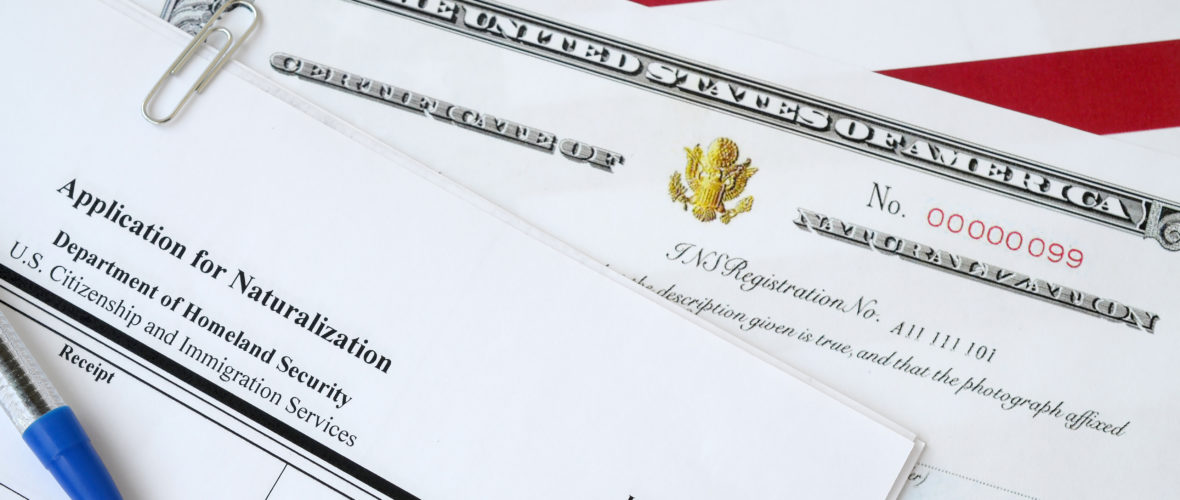

Navigating the U.S. citizenship process can be a significant milestone for immigrants living in the United States and is a culmination of years of work. It offers numerous benefits, including the right to vote, access to government benefits, and protection from deportation. However, the path to citizenship can be complex and requires careful navigation through various requirements and procedures. Here, we will provide you with a step-by-step guide to help you understand and navigate the US citizenship process. Firstly, determining your eligibility. Secondly, preparing form N-400. Thirdly, going to your biometrics appointment. Finally, attending your interview. As a result, you will have a clearer understanding of what it takes to become a US citizen and be better prepared to embark on your own citizenship journey.
Generally, you are qualified to become a U.S. citizen if you are 18 years or older and you have been a lawful permanent resident of the U.S. for the past 5 years (only 3 years if married to a U.S. citizen). However, there are some further requirements and some special circumstances.
If you are at least 18 years old and have held Lawful Permanent Residency for the past 5 years, you also cannot have left the U.S. for trips lasting longer than 6 months. You must then meet the good moral character requirement, have English and Civics knowledge, and have an attachment to the U.S. Constitution.
If you are at least 18 years old, are married to and currently living with a U.S. citizen, have been married to and living with them for the last 3 years, and your spouse has been a citizen for the last 3 years, then you only have to have held Lawful Permanent Residency for 3 years. You also cannot have left the United States for trips lasting more than 6 months. Then, you must meet the same requirements of having English and Civics knowledge, have good moral character, and have an attachment to the U.S. Constitution.
If you are a member of the U.S. Armed Forces and have served for at least one year, then there is no continuous residency requirement. You only must be a Permanent Resident on the day of your interview. However, you still must meet good moral character, English and Civics knowledge, and attachment to the U.S. Constitution requirement.
If you are at least 18 years old and are married to a U.S. citizen who is also a member of the U.S. Armed Forces, then you are not required to satisfy any continuous residency requirements. However, you must be a Lawful Permanent Resident on the day of your interview. Still, you must meet the good moral character, English and Civics knowledge, and attachment to the U.S. Constitution requirements.
Form N-400, Application for Naturalization, is the form you must submit to USCIS to apply for Naturalization. This form must be submitted with substantial evidence proving your Naturalization eligibility. Some evidence includes:
After you file your N-400, USCIS will send you a notice to appear for a biometrics appointment. Once you appear, they will take your fingerprints and your photograph to conduct a Federal Bureau of Investigation (FBI) criminal background check. However, if you already had to appear for biometrics in regard to another application, USCIS may be able to reuse these. If this is the case, you will receive a notice informing you that you do not need to appear for biometrics.
Once USCIS receives your biometrics, you will be informed that you must appear for an interview appointment. What to expect at your interview:
You will receive an official notice from USCIS stating your approval or denial of your Application for Naturalization.
If USCIS grants your application, you will receive a notice to appear for an oath ceremony. Before your appointment, you must complete form N-445 which has a set of questions to answer. You will then take your oath and receive your Certificate of Naturalization.
If, for some reason, your application gets denied, you have the option to appeal the case. Consequently, if you decide to appeal, you must submit form N-336 within 30 days of receiving your denial notice.
Overall, becoming a U.S. Citizen brings many new opportunities to immigrants. However, navigating the U.S. citizenship process can be extremely difficult, and completing this accurately is of the utmost importance. Contact us today to learn more about becoming a U.S. Citizen.,